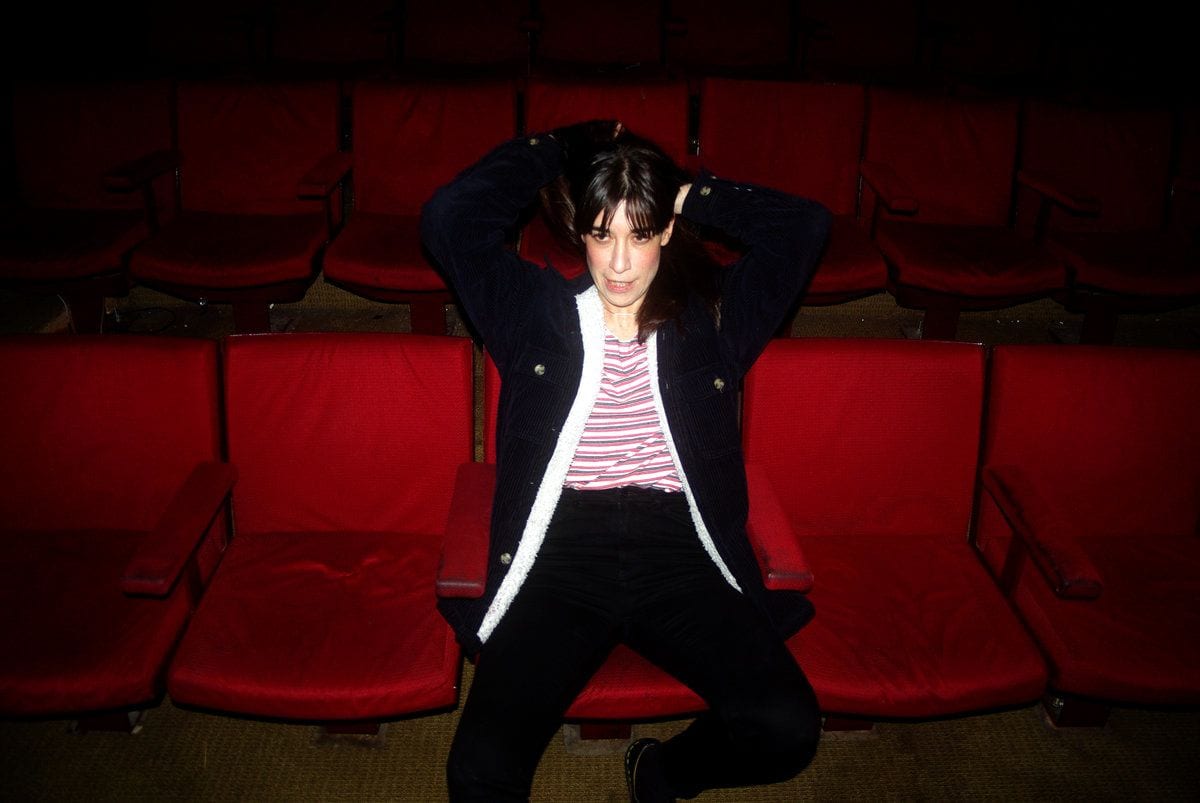
Melbourne-based rocker Sarah Mary Chadwick received an unusual invitation. The City of Melbourne commissioned her to do a new piece of music, which isn’t strange, but it was to be performed on the city’s 147-year-old grand organ. The giant instrument produces a sound equally massive, offering a challenge for a solo performance. Chadwick took to it naturally, with her performance from 2018 captured live for the new album The Queen Who Stole the Sky. The mix of the organ’s tone and Chadwick’s anguish makes for an intense and personal listening experience.
It’s a wonder that Chadwick hadn’t recorded with an organ before, as it may be the only instrument capable of keeping up with vocal and lyrical expressiveness. She plays slowly, using sustained chords as the primary vehicle for her songs. The smart approach takes advantage of the organ’s natural resonance and develops a distinctive style; playing it like a piano would have hampered the effect. As it is, she creates a strange sense of the religious combined with a cavernous void. Chadwick sounds like she’s playing hymns to oblivion, which isn’t too far from the truth.
Chadwick engages with an unrelenting bleakness. Opener “Confetti” begins with her singing, “And I am like if you took a pencil / And drew a circle / Rubbed out that circle / I am what’s inside.” She develops various metaphors for herself, none of which are particularly optimistic. There’s a hurt emptiness throughout, and Chadwick has the voice to poke each corner of the song just to make sure. She falls through dreams and looks at death, carefully working the dynamics of the song for a tidal experience that never quite refreshes.
For “On the Make” she sings, “No matter how much joy there is / Trust me, I spin in it to sorrow.” Every bit of relief she hints at eventually falls under the weight of everything that’s crushing her. Each hit on the organ has to be its own form of resistance. It’s hard to tell if the resistance holds, though. Chadwick continues to turn herself inside out for song after song, but the dawn never comes. Even in the dark, Chadwick finds deep personal insight.
On “Next in Line”, she connects a lack of paternal love to her current relational issues with a devastating sequence: “I never had a man around to love me when I was younger / And that’s fine / But there’s no amount of love that could fill me / So I keep searching through the line / Who’s next in line?” Chadwick doesn’t look away from her pain, but she doesn’t rationalize it, and she doesn’t quite overcome it, other than to endure.
That positioning makes The Queen a demanding listen. Chadwick shows remarkable skill with dynamics, but she uses too limited a palette. Part of that, of course, stems from the project itself and the reliance on the organ, but part of it comes from her lyrical focus. Such an approach could offer great catharsis (and it will work for many listeners), but it also stays stuck too long, meaning not only that it doesn’t completely offer relief, but the hurt packed into any individual song begins to fade when it blends into part of such a large and persistence emotional context.
Or maybe it just requires a dark enough night for playing. As a single piece of art, the concert experience probably offered something exceptional, as each of these tracks on their own has surprise and depth. Chadwick’s revelations do linger. When she finishes the album with “Something So Sweet” by singing, “It’s me that lights up this town”, building the chords, and then dipping into a soft finish, she points to a possible future. After all, she “managed to stick around”, and the control and mild optimism of the closing track suggests a vision worth seeing through.


![Call for Papers: All Things Reconsidered [MUSIC] May-August 2024](https://www.popmatters.com/wp-content/uploads/2024/04/all-things-reconsidered-call-music-may-2024-720x380.jpg)



